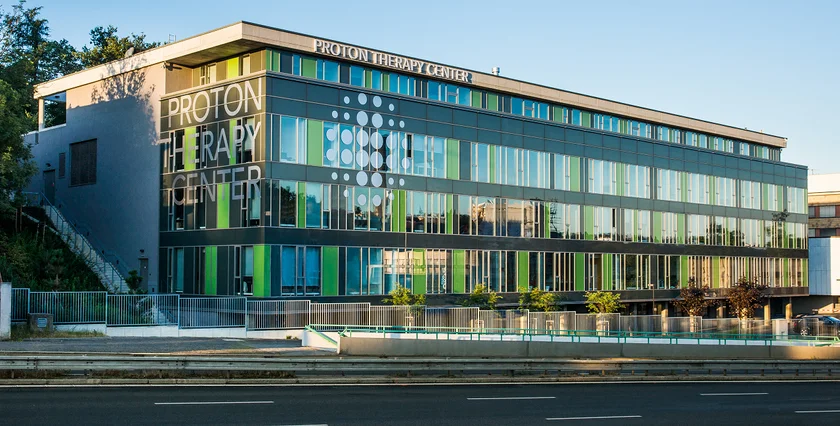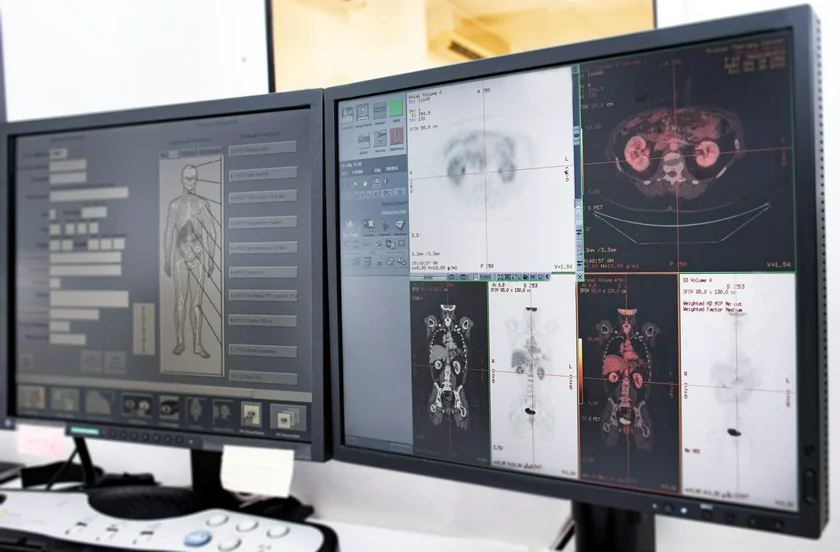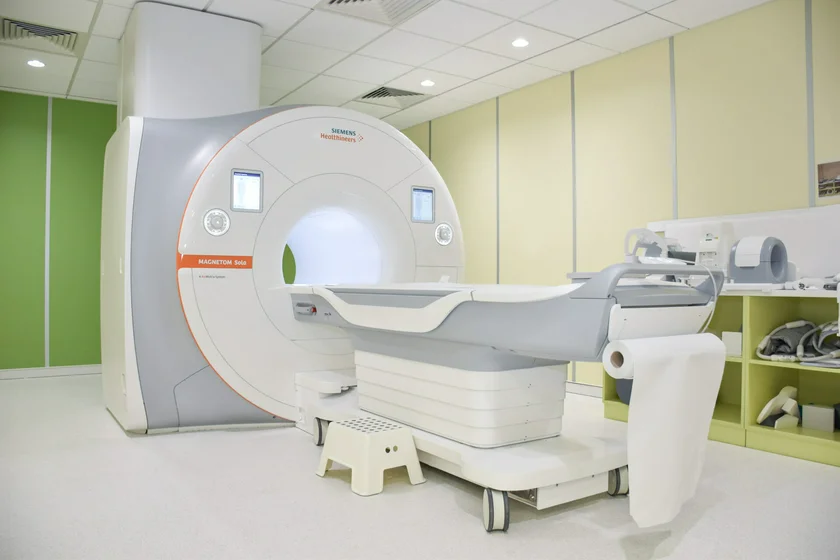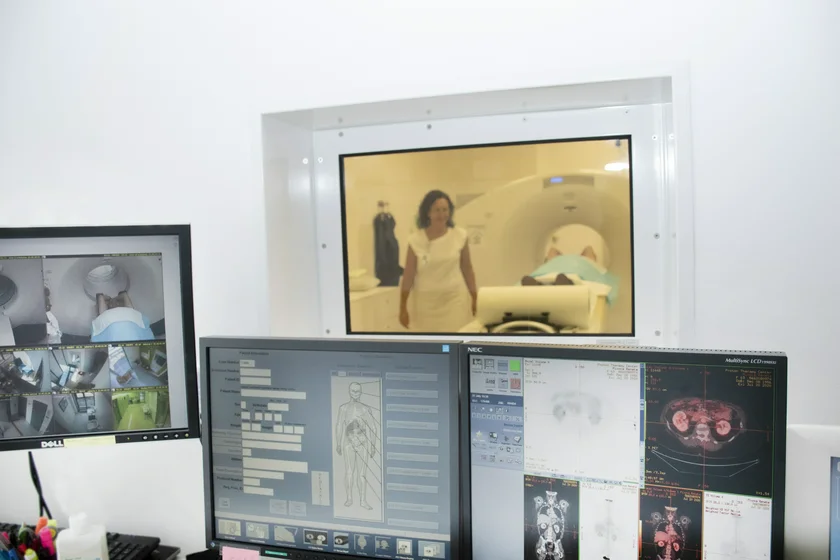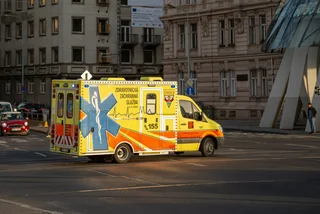A recent international survey found that more than 40 percent of oncologists carried out fewer colon, rectal, prostate, and breast cancer examinations during the coronavirus pandemic. More than 80 percent of respondents say that those delayed and postponed precautionary examinations resulted in a lower number of successful and timely cancer diagnoses.
What this research likely didn't factor in are those foreigners living abroad who, Covid or not, face an additional obstacle when it comes to navigating and accessing the critical screenings that can lead to timely diagnoses: the language barrier.
Dr. Daniel Klika is Chief Physician of the Department of Radiodiagnostics at Prague's Proton Therapy Center (PTC) in the Na Bulovce hospital complex which offers MRI or PET/CT to patients who have been referred by their GP or specialist, or men with prostate issues in need of comprehensive urological examinations. He says delays in diagnosis could have serious consequences for one's long-term health.
“Early diagnosis is one of the key factors in the success of treatment as well as to the return to normal life,” says Dr. Klika who encourages people not only to get checked if they are experiencing symptoms but not to skip preventative screenings that can help detect early stages of cancer or other health issues.
In connection with the spread of Covid, Proton Therapy Center adopted all the necessary measures and recommendations to protect the safety of its patients and staff and has been able to continue to ensure the optimal continuum of care to its adult and pediatric patients worldwide during the pandemic.
Covid aside, Dr. Klika says that foreign patients who are unfamiliar with the system may find the process – from the initial step of making an appointment to the moment of going through the procedure itself – a bit intimidating.
He adds that because the Czech healthcare system requires a patient’s doctor to provide an initial referral for an MRI or PET/CT scan, patients must either schedule the appointment and undergo the examination in Czech, paid for by their Czech healthcare provider, or go to a private clinic and pay for the examination out of pocket, with the advantage of being able to speak English with the staff.
Proton Therapy Center is unique for offering patients a hybrid of these two options.
"Our services are covered by Czech healthcare providers, meaning patients avoid most out-of-pocket expenses. Our staff also speaks English as well as several other languages, Slovak, Serbo-Croatian, and Russian (in addition to Czech)," says Dr. Klika.
The center, which, since its opening in 2012, has treated almost 7,000 patients from 50 countries, also believes it is crucial to keep the wait time between making an appointment and undergoing an examination as short as possible.
"Because undergoing diagnostic examinations in a timely manner is critical for determining the next treatment strategy," Dr. Klika says, "We provide short waiting times for examinations and schedule patients as soon as possible, usually between 2-3 weeks."
Proton Therapy Center offers MRI and PET/CT to any patient experiencing issues (even simply shoulder pain) with a referral from their general physician or specialist. They also offer breast MRI and comprehensive urological examinations.
Breast cancer is the most common cancer in women and its incidence is increasing every year. The most effective weapon in the fight against this disease is prevention, i.e. early detection of cancer. While Breast MRI does not replace mammography or sonography, it can be an important complementary method, in cases where the doctor deems it appropriate.
"Breast MRI is also optimal if there are any suspicious findings in ultrasound and the woman does not yet fall into the age category for mammography examination," Dr. Klika says, adding that breast MRI can also be used by women who underwent mammography and doctors were doubtful about the findings.
Men older than 50 should see a urologist every year while those who have a family history of prostate cancer should be regularly examined from the age of forty. Part of the comprehensive urological examination offered at Proton Therapy Center is a prostate-specific antigen (PSA) blood test, which can help detect the presence of prostate cancer at early stages.
Dr. Klika says that patients looking for urological examinations can contact the center, without the need for a referral, for preventative and targeted uro-oncological examinations.
He says that another potential issue among those who are afraid to undergo MRI procedures is the general panic and discomfort that can be brought on by being in an enclosed space.
At PTC, diagnostic exams are performed in a state-of-the-art MRI machine, acquired by the center in 2020. The machine is unique for its extra-wide opening which is designed for maximum comfort during the procedure. It also allows for the examination of larger patients.
“The large gantry also reduces feelings of claustrophobia," says Dr. Klika, “and in many cases, the patient can be positioned in such a way that their head does not enter the gantry at all.”
On February 5, 2020, Proton Therapy Center reached a milestone: performing a PET/CT scan on its 10,000th patient. Dr. Klika says that the PTC staff's patient-friendly approach will continue to put a human face on what can be an already uncomfortable and anxious experience.
Proton Therapy Center has earned a reputation both at home and abroad for its proton radiotherapy cancer treatment, Dr. Klika adds that part of the Proton Therapy Center is the Department of Modern Diagnostics which is open to anyone who is experiencing symptoms, not just oncological ones.
"We are open to anyone who is in need of diagnostic services in a unique and trustworthy healthcare institution," he says.
This article was written in association with Proton Therapy Center. PTC's doctors and staff are able to answer questions and assuage fears in English; appointments can also be made in English (via email or phone) and wait times for appointments are short, ranging from 2-3 weeks. The facility is easily accessible from the city center by public transportation and conveniently located just a 4-minute walk from the Bulovka tram stop. To read more about our partner content policies see here.











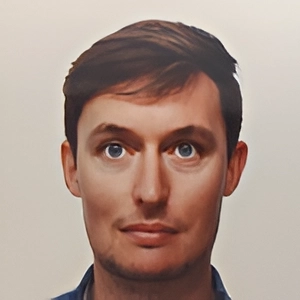
 Reading time: 5 minutes
Reading time: 5 minutes 

